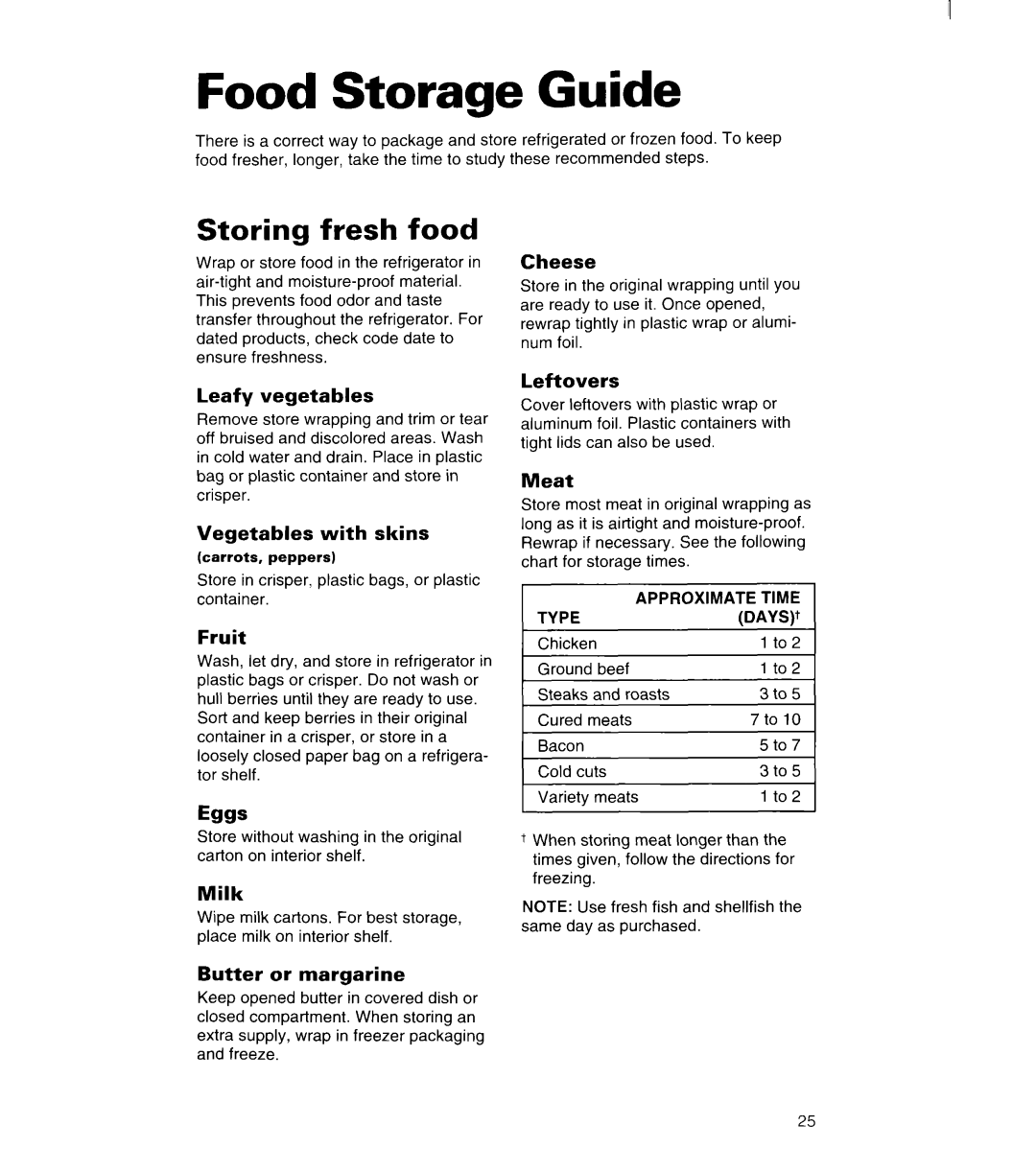
Food Storage Guide
There is a correct way to package and store refrigerated or frozen food. To keep food fresher, longer, take the time to study these recommended steps.
Storing fresh food
Wrap or store food in the refrigerator in
Cheese
Store in the original wrapping until you are ready to use it. Once opened, rewrap tightly in plastic wrap or alumi- num foil.
Leafy vegetables
Remove store wrapping and trim or tear off bruised and discolored areas. Wash in cold water and drain. Place in plastic bag or plastic container and store in crisper.
Vegetables with skins
(carrots, peppers)
Store in crisper, plastic bags, or plastic container.
Fruit
Wash, let dry, and store in refrigerator in plastic bags or crisper. Do not wash or hull berries until they are ready to use. Sort and keep berries in their original container in a crisper, or store in a loosely closed paper bag on a refrigera- tor shelf.
Eggs
Store without washing in the original carton on interior shelf.
Milk
Wipe milk cartons. For best storage, place milk on interior shelf.
Leftovers
Cover leftovers with plastic wrap or aluminum foil. Plastic containers with tight lids can also be used.
Meat
Store most meat in original wrapping as long as it is airtight and
APPROXIMATE TIME
TYPE(DAYS)+
Chicken | 1 to 2 | |
Ground | beef | 1 to 2 |
Steaks | and roasts | 3 to 5 |
Cured | meats | 7to 10 |
Bacon |
| 5 to 7 |
Cold cuts | 3 to 5 | |
Variety | meats | 1 to2 |
+When storing meat longer than the times given, follow the directions for freezing.
NOTE: Use fresh fish and shellfish the same day as purchased.
Butter or margarine
Keep opened butter in covered dish or closed compartment. When storing an extra supply, wrap in freezer packaging and freeze.
25
